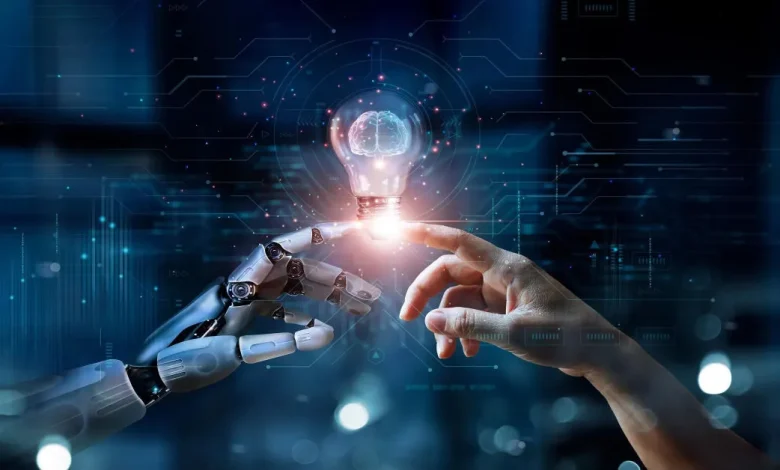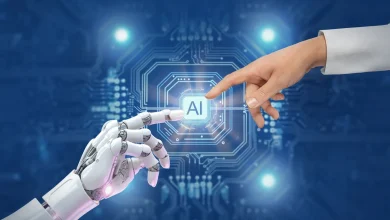How AI Is Transforming Business Operations in 2025?

Introduction
Artificial Intelligence (AI) is no longer science fiction; it’s a game-changing reality, transforming how businesses worldwide do business. It transforms the customer experience, internal processes and challenges the status quo by creating efficiencies we never thought possible. How AI changes business in 2025 isn’t an idle conversation; it’s a strategic requirement.
Smart Automation in Daily Processes
Thanks to AI, routine, time-consuming tasks that once required human intervention are now being automated. Intelligent bots now handle repetitive tasks such as data entry, invoice processing, and customer support. This saves more than just the cost of their work; it also keeps employees available to concentrate on their essential tasks.
For example, when integrated with artificial intelligence (AI), robotic process automation (RPA) can be used by employers to automate whole tasks. Whether orienting a new employee or processing thousands of customer orders, AI can do it quickly and accurately.
Data-Driven Decision Making
Data Insight (or AI in Business), one of the most effective ways AI streamlines business operations, is through data analysis. Businesses produce vast volumes of data every day. AI systems can interpret this data on the fly, identify patterns, and suggest actions to be taken.
Predictive analytics, based on machine learning algorithms, enables businesses can predict trends and customer behaviour and minimize risks. The result is more intelligent decision-making, enhanced productivity and a genuine competitive advantage in the marketplace.
Personalized Customer Experiences
It’s 2025, customers are more demanding than ever. AI capabilities enable organizations to offer hyper-individualized experiences by analyzing data, preferences, and consumer behaviour. AI chatbots, virtual assistants and recommendation engines are currently non-negotiable components of customer service strategies.
AI, for example, enables e-commerce platforms to curate and recommend products according to a shopper’s purchase history, browsing history and even mood; ultimately leading to a more personalized, and therefore more engaging, shopping experience. The more engaging the experience, the higher the likelihood of purchasing.
AI in Supply Chain and Logistics
AI adoption has revolutionized supply chain management in a big way. AI algorithms are streamlining logistics, from demand forecasts to route optimization. Today, in AI-enabled supply chains, on-the-go real-time tracking, inventory management, and predictive maintenance are a foregone conclusion. This transitions into lower runtime, efficient resource utilization and a more satisfied customer experience.
Enhanced Cybersecurity and Risk Management
Where digital operations expand, hacking will surely follow. The intelligence blog says AI is helping to identify vulnerabilities, spotting odd behaviour that an alert human being might have picked up on earlier, and responding to threats before they’ve become destructive. Security systems developed using AI continue to learn and evolve, ensuring proactive defence against ever-changing cyber threats.
In addition, AI supports regulatory compliance and risk assessment to keep businesses out of hot water, legally and financially.
Conclusion
How AI is Transforming the Business World in 2025 is straightforward; businesses are becoming more intelligent, faster and more focused on the customer. AI can help you automate many routine tasks, facilitating more intelligent decision-making from the start and beyond; it’s not just a feature of a business but an indispensable asset for forward-thinking organizations. The adoption of AI is now a necessity to remain competitive in today’s digital environment.




